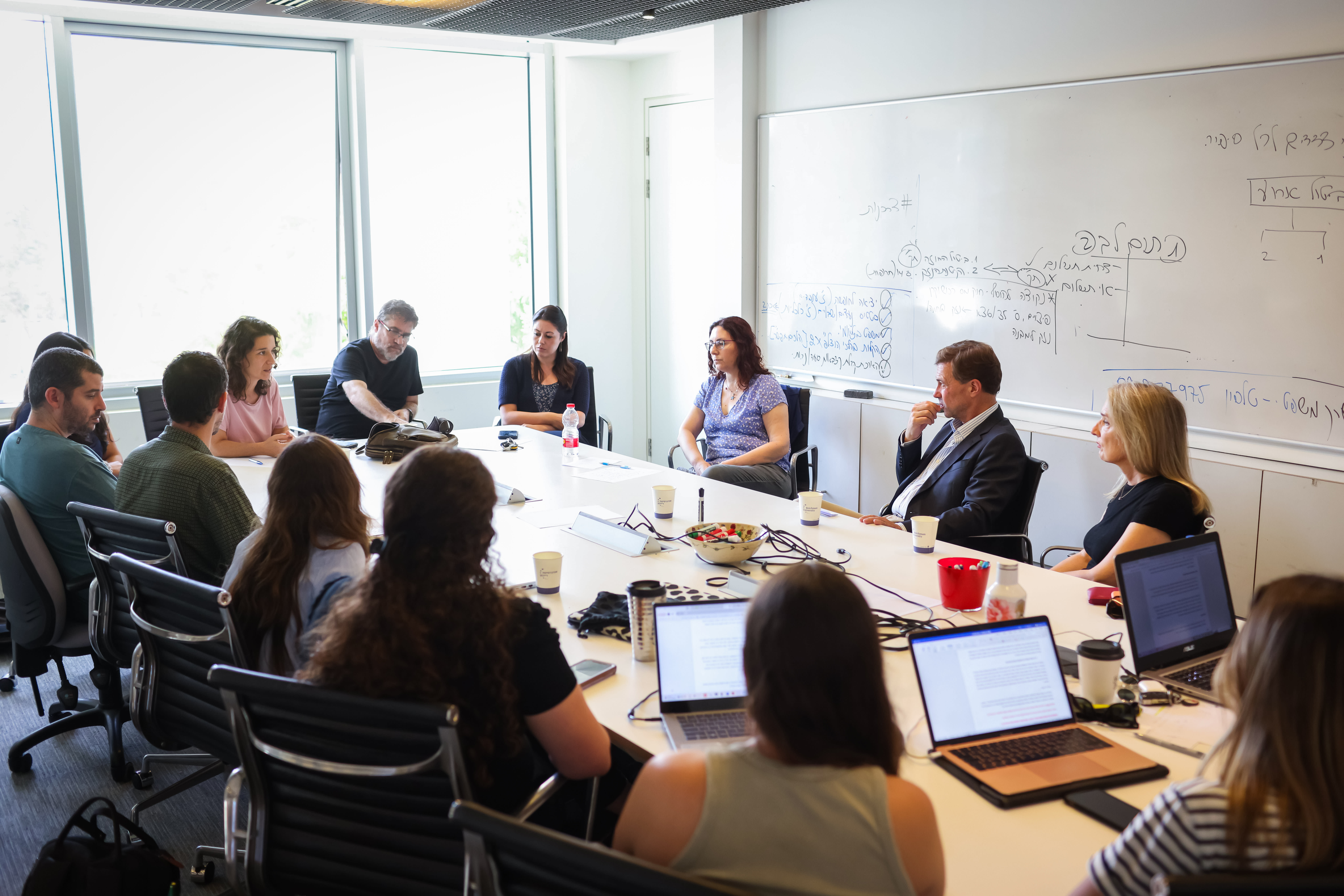In the face of the October 7th terror attack by Hamas, Reichman University swiftly embraced its commitment to freedom and social responsibility. Recognizing the urgent need for support, the Legal Aid Clinics on campus emerged as crucial first responders. From drafting informative memos on the rights of those impacted by the war to establishing a dedicated legal aid response center, the university demonstrated its unwavering dedication to assisting displaced families.
Led by the Dean and staff of the Harry Radzyner Law School, Prof. Lior Zemer (Dean), Dr. Neta Nadiv (Head of the Experiential Program), and Adv. Sharon Sionov (Head of Clinical Legal Education), the Response Center was formed to provide free legal assistance, particularly to individuals evacuated from their homes in the south and north.
Volunteers of the Response Center went beyond mere communication via calls and emails, actively participating in face-to-face meetings at various locations where evacuees sought refuge. One such impactful meeting involved a law student assisting a single mother of seven who had fled her home. Discovering the mother’s eligibility for a retroactive aid grant, the volunteer provided invaluable support in navigating the application process, potentially changing the trajectory of the mother’s financial situation.
During its operation, the Response Center received visits from notable figures, including the German Ambassador to Israel, H.E. Stefan Seibert. Expressing solidarity and acknowledging the resilience of the Israeli people, Amb. Seibert commended the civil society actions, particularly praising the efforts of the Response Center.
Member of the Knesset Ms. Karine Elharrar visited the Response Center to gain insights into legislative actions that could aid those affected by the war. Volunteers shared complex issues and difficulties faced during their efforts, fostering a collaborative dialogue between lawmakers and grassroots initiatives.

Omri Kaplansky, a second-year Law and Government student volunteering at the Response Center, shared her perspective: “Since the beginning of the war, I have been volunteering at the Response Center. We help citizens with issuing inheritance orders, submitting insurance claims, helping evacuees with rental agreements, and much more. As part of the Response Center, I assisted a widow whose husband fought in one of the combat units and was killed on October 7th. She sought information and assistance in various matters such as insurance, mortgages, inheritance orders, and even in recognizing her status as the widow of an IDF soldier. Of course, we helped as much as possible.”
Her testimony underscores the diverse range of issues tackled by the legal clinics.
The Response Center is still active and until today have handled over 600 inquiries spanning a broad spectrum of subjects, including labor rights, youth, housing, mental health, social insurance, welfare, grants, and inheritance arrangements. The multifaceted approach of the Response Center reflects its commitment to addressing the numerous challenges faced by those affected by the conflict.
In times of crisis, Reichman University’s legal aid initiative stands as an inspiration of support, showcasing the power of community-driven action in alleviating the legal burdens borne by displaced families.
This article was written in cooperation with Reichman University
